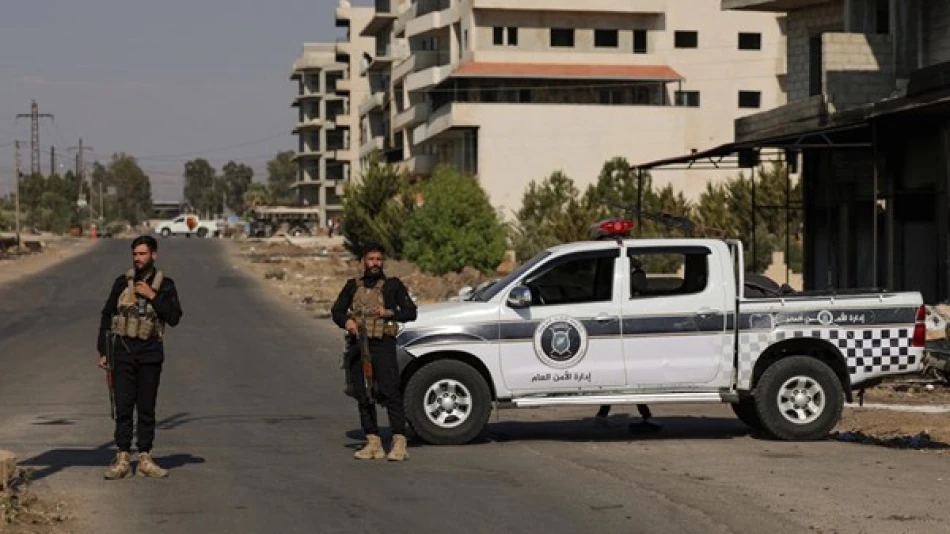
Deadly Violence Escalates in Sweida, Casualties Soar
Syria's Suwayda Violence Claims 1,265 Lives as Ceasefire Takes Hold
The death toll from intense tribal clashes in Syria's southern Suwayda province has reached 1,265 people, according to updated figures released Monday by the Syrian Observatory for Human Rights. The violence, which erupted between tribal fighters and local armed groups on July 13, represents one of the deadliest internal conflicts in the war-torn nation's recent history before a ceasefire took effect Sunday.
Escalating Tribal Warfare in Syria's Druze Heartland
The Syrian Observatory for Human Rights revised its casualty figures upward from a previous count of 1,120 deaths, citing additional documentation of victims killed during the months-long confrontation. The fighting in Suwayda province, home to Syria's Druze minority, underscores the fragmented nature of post-civil war Syria, where local grievances can explode into devastating conflicts even as the broader war has largely subsided.
Suwayda province has remained relatively autonomous throughout Syria's 13-year conflict, with the Druze community maintaining a cautious distance from both government forces and opposition groups. However, economic desperation, drug trafficking routes, and competition for resources have fueled tensions between different tribal factions and armed groups.
A Pattern of Localized Violence
This latest outbreak follows a familiar pattern across post-conflict Syria, where weakened central authority has created power vacuums filled by local militias, tribal leaders, and criminal networks. The Suwayda violence mirrors similar conflicts in eastern Syria's Deir ez-Zor province, where tribal disputes over oil smuggling and territory have claimed hundreds of lives in recent years.
Economic Desperation Fuels Conflict
Syria's economic collapse, with the Syrian pound losing over 99% of its value since 2011, has intensified competition for scarce resources. In border provinces like Suwayda, smuggling networks for drugs, particularly the amphetamine Captagon, have become major sources of income, often triggering violent territorial disputes between competing groups.
Implications for Syria's Fragile Stability
The high casualty count in Suwayda raises serious questions about the Syrian government's ability to maintain order in peripheral regions. While Damascus has regained control of most Syrian territory, its capacity to project authority into remote provinces remains limited, creating space for local conflicts to escalate unchecked.
The ceasefire's implementation will be closely watched as a test case for conflict resolution in Syria's complex post-war landscape. Success in Suwayda could provide a template for addressing similar disputes elsewhere, while failure might signal a return to the fragmentation that characterized Syria's darkest years.
Regional Security Concerns
The violence in Suwayda also carries implications for regional stability. The province borders Jordan, and escalating conflicts could strain border security and potentially spill across international boundaries. Jordan has already invested heavily in border fortifications to prevent Syrian instability from affecting its territory.
Most Viewed News

 Layla Al Mansoori
Layla Al Mansoori






